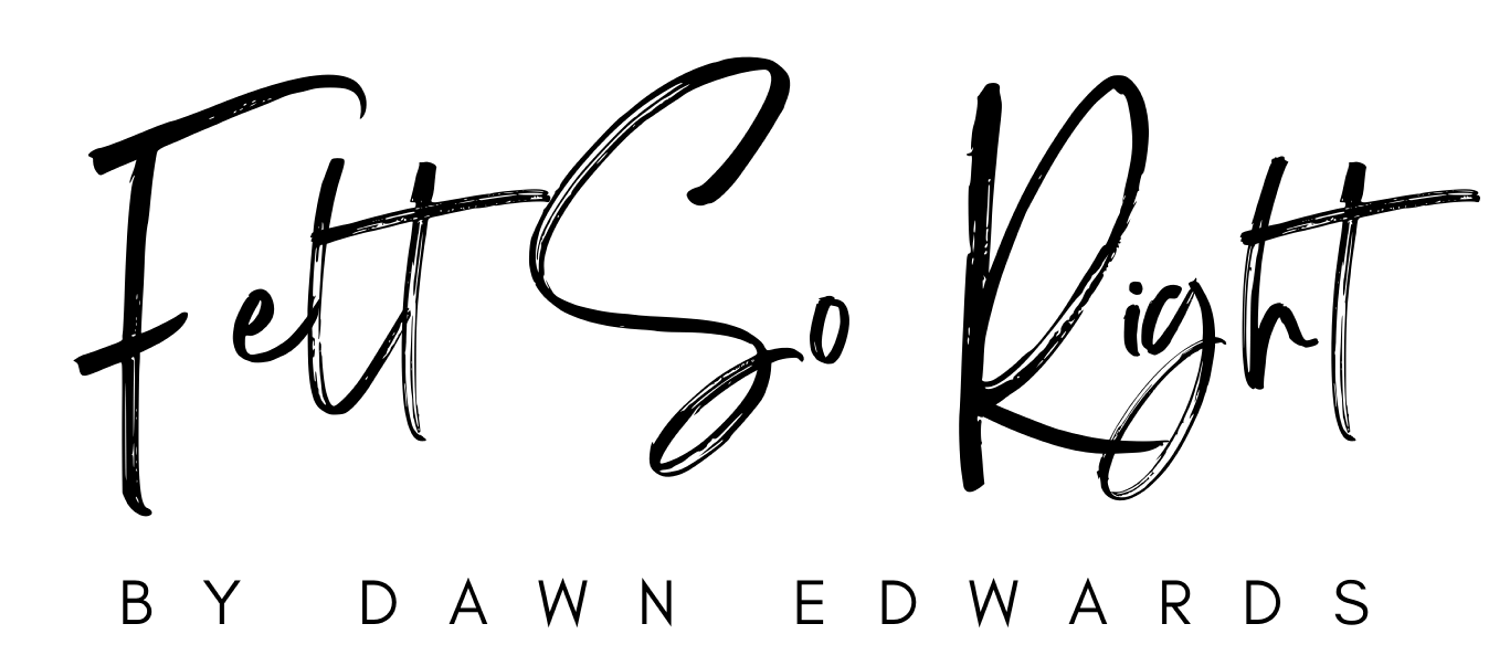Website Accessibility
Felt So Right is committed to providing a website that is accessible to the widest possible audience, regardless of technology or ability.
We are committed to ensuring digital accessibility for people with disabilities and are continually striving to improve the user experience for everyone, and to apply the relevant accessibility standards.
Despite our efforts to make all pages and content on FeltSoRight.com fully accessible, some content may not have yet been fully adapted to the strictest accessibility standards. This may be a result of not having found or identified the most appropriate technological solution.
We're here to help.
If you experience any difficulty in accessing any part of this website, please feel free to email us at dawn@feltsoright.com. We will work with you to provide the information, item, or transaction you seek through an alternate communication method or one that is accessible for you consistent with applicable law (for example, through telephone support).
Accessibility Resources:
-
Some people like to zoom into the screen or web browser in order to see things better. Here are a few ways of doing it depending on your setup:
On Windows, press the Windows key and plus sign (+) at the same time to zoom in. You can also use the "Magnifier" application under "Accessories".
On Mac, go to "System Preferences", open "Universal Access" and select the "Seeing" tab. Check the box under "Zoom" to "On".
On your Apple device, tap "Settings", then "General", then "Accessibility". Tap the "Zoom" button and toggle it "On".
Another trick is to use "Ctrl" ("Cmd" on Mac) plus the plus (+) or minus (-) keys when you're in a web browser.
-
Some people like to change colors or fonts to see words more clearly. Most major web browsers have options to do this:
In Internet Explorer, go to "Tools", then "Internet Options", on to "General". From here, select "Colors, Fonts, or Accessibility".
In Mozilla Firefox, choose "Options", then "Content", then finally "Fonts & Colors".
In Safari, select "Preferences", "Appearance" tab, and then hit the "Select…" button next to the font fields.
In Chrome, go to "Preferences", activate the "Show advanced settings" link, go to the "Web content" heading and change the "Font size", "Customize fonts" in other ways, or set default "Page zoom".
We recommend a mixture of settings like enlarging font size and zooming into the browser for a better experience.
-
Screen readers are text-to-speech software that allow people to read and interact with content in different ways. Many people who cannot perceive what is on the screen will use them to allow audible access to web content.
There are free options available including NVDA for Windows and VoiceOver for Mac. We recommend JAWS for Windows. You can use this with your favorite web browser.
Screen readers accept input in a variety of ways, but one of the most common forms is through your keyboard. By pressing the down arrow in JAWS, for example, you are able navigate through items on the page. JAWS will also accept Braille input.
-
There are a lot of great features right on your smart phone. iOS and Android alike provide many tools to help you access what you love. Here are a few of those tools:
VoiceOver for iOS and TalkBack for Android are the screen readers that come built-in. To turn on VoiceOver, go to "Settings", then "General", to "Accessibility", and then turn "VoiceOver" on. You can set the “Accessibility Shortcut” to “VoiceOver” from the "Accessibility" page in order to triple-click the "Home" button to toggle VoiceOver on and off. TalkBack has a similar feature.
"Zoom", "Magnifier", "Invert Colors", "Color Filters", and "Reduce White Point" are other features and tools on iOS that you can use. These are also available through the “Accessibility Shortcut”.
